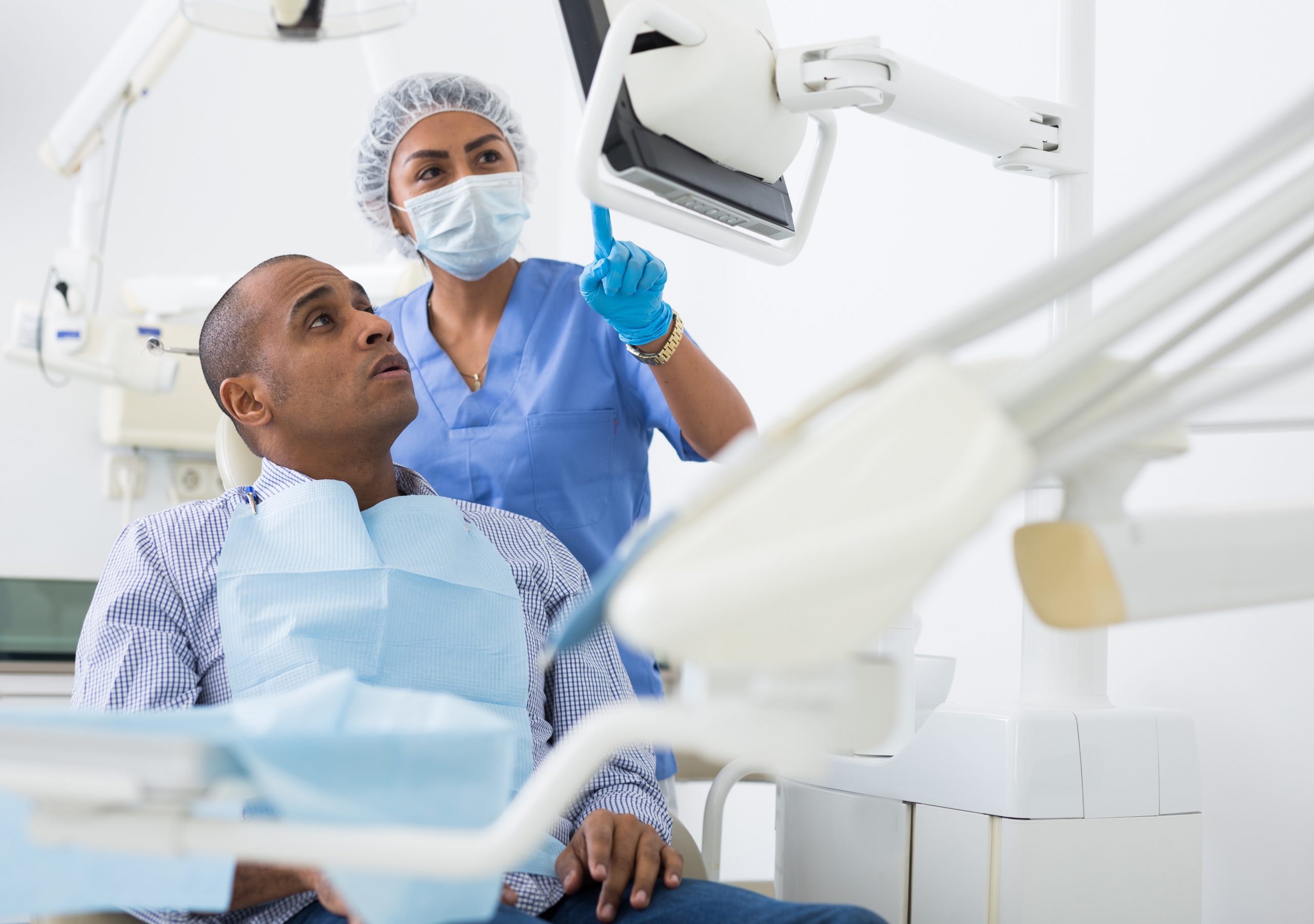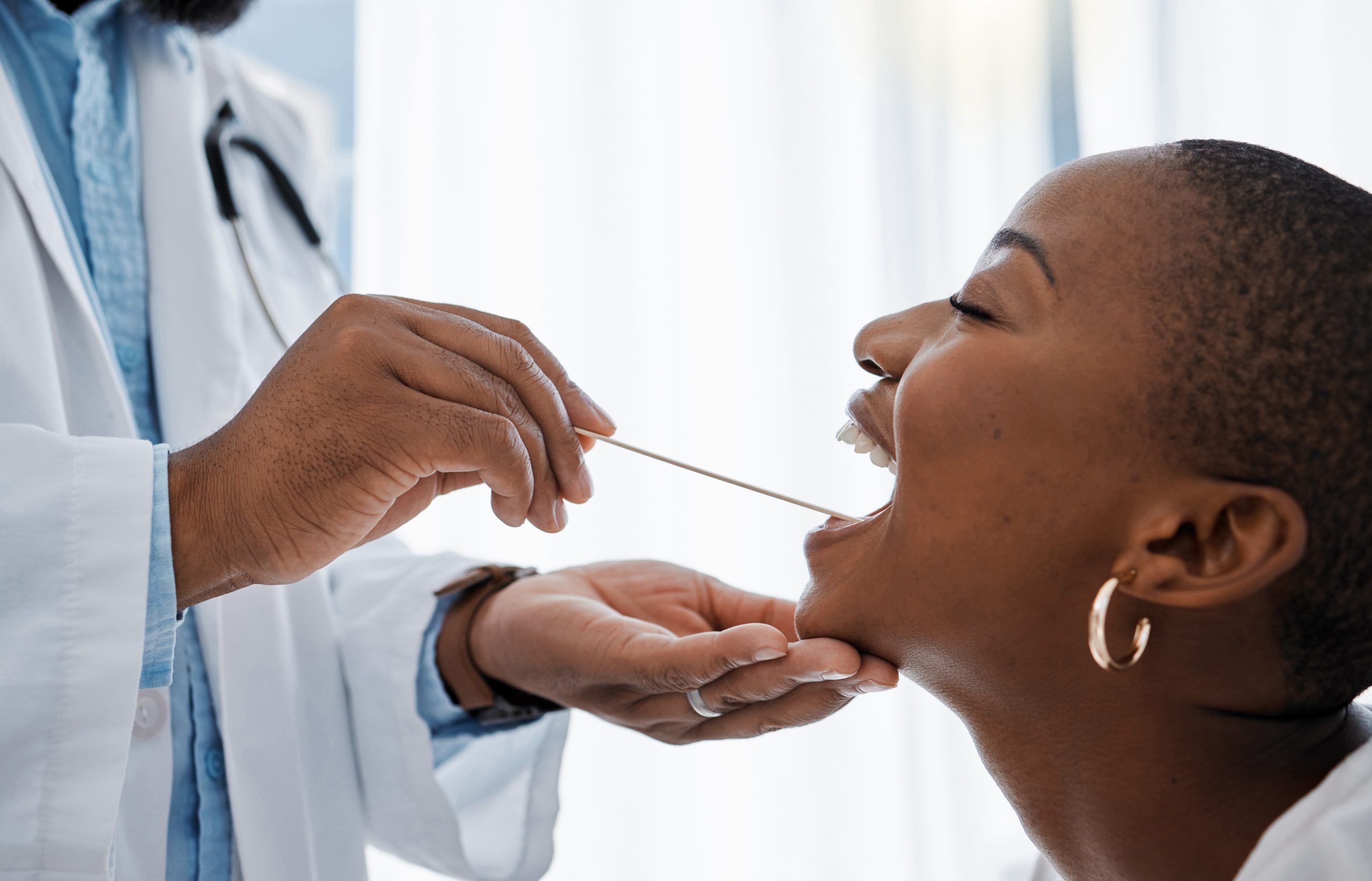Reserve your spot for a free, comprehensive oral examination at our New Patient Fair on November 7th.
Chemotherapy is a common treatment for cancer that uses powerful drugs to kill cancer cells. But while its primary focus is to target and destroy cancer cells, chemotherapy is also known for causing side effects elsewhere in the body.
Does chemotherapy affect your teeth? Unfortunately, the answer is yes. Penn Dental Medicine (PDM) explains how it affects teeth and oral health. PDM also provides tips on maintaining good oral hygiene and a better quality of life during treatment, which may include access to our cancer care outreach program.
Understanding the Connection Between Chemotherapy and Oral Health
The effects of chemotherapy on the teeth and mouth can vary from person to person, depending on the specific chemotherapy drugs used and the duration of treatment.
What Are the Side Effects of Chemotherapy on My Teeth and Mouth?
 Dry mouth. One common side effect of chemotherapy on patients with head or neck cancer is dry mouth, also known as xerostomia. This occurs when the salivary glands do not produce enough saliva. Saliva helps neutralize acids produced by bacteria, prevents tooth decay, and keeps the mouth moist. Individuals may experience difficulty speaking, chewing, and swallowing without adequate saliva flow.
Dry mouth. One common side effect of chemotherapy on patients with head or neck cancer is dry mouth, also known as xerostomia. This occurs when the salivary glands do not produce enough saliva. Saliva helps neutralize acids produced by bacteria, prevents tooth decay, and keeps the mouth moist. Individuals may experience difficulty speaking, chewing, and swallowing without adequate saliva flow.
Mouth sores. Another issue that can appear during chemotherapy is oral mucositis, which is the inflammation and ulceration of the oral mucosa. Just as chemotherapy kills cancer cells, it can also kill healthy cells. When it targets the healthy cells in the mouth lining, it makes it harder to fight off bacteria and can cause painful sores to develop on the gums, tongue, and inner lining of the mouth, making it uncomfortable to eat, drink, and brush your teeth.
Oral infections. Because chemotherapy can weaken the immune system, it reduces the body’s ability to fight infections. This can increase the risk of developing oral infections, such as fungal infections (thrush) and viral infections (herpes simplex). It can also contribute to gum disease and tooth decay.
Changes in taste. Foods that used to taste pleasant may now taste metallic, bitter, or just different. This can affect appetite and nutrition during treatment, as many patients experience a decreased desire to eat.
It’s important to note that radiation therapy can also cause similar oral health issues. When radiation is focused on the head or neck area, it can damage the salivary glands, leading to chronic dry mouth. The lack of saliva increases the risk of tooth decay and gum disease and may decrease the ability to taste food.
Radiation therapy can also result in osteoradionecrosis, a condition in which the jawbone does not receive enough blood supply and slowly deteriorates. This can lead to severe pain, difficulty opening the mouth, and dental complications, such as tooth loss.
How Can I Take Care of My Teeth and Mouth During Chemotherapy?
 The first step in caring for your teeth during chemotherapy is to schedule a dental checkup before starting treatment. Your dentist will examine your teeth and gums and address any problems before chemotherapy begins. This proactive approach will help minimize potential issues during treatment. Of course, if you’ve already started chemotherapy and haven’t visited the dentist, don’t wait. Schedule an appointment as soon as possible.
The first step in caring for your teeth during chemotherapy is to schedule a dental checkup before starting treatment. Your dentist will examine your teeth and gums and address any problems before chemotherapy begins. This proactive approach will help minimize potential issues during treatment. Of course, if you’ve already started chemotherapy and haven’t visited the dentist, don’t wait. Schedule an appointment as soon as possible.
During chemotherapy, proper oral hygiene is essential.
- Brush your teeth at least twice daily with a soft toothbrush and fluoride toothpaste.
- Gently brush the gums and tongue to remove any bacteria that may cause infections.
- Floss daily to help remove food particles and plaque from between the teeth.
- Rinse with a medicated mouthwash or saltwater solution to provide relief and prevent infections.
- Talk to your dentist about fluoride treatments or dental sealants to help protect your teeth from decay.
Additionally, you should:
Stay hydrated. Drinking plenty of water throughout the day helps counteract dry mouth, and using sugar-free gums or lozenges can stimulate saliva. Avoid caffeine, alcohol, and other food and drinks high in sugar or acid, as they can further contribute to tooth decay and dryness.
Maintain a healthy diet. Nutritious foods, such as fruits and vegetables, and those rich in whole grains, can boost your immune system and aid healing. However, avoid extremely hot or spicy foods that may irritate your mouth. Opt for softer foods, such as soups or mashed potatoes, which are easier to eat. Also, ask your dentist for suggestions to help maintain an optimal diet despite changes in taste perception.
Keep your dentist and oncologist informed of any issues or changes. They can help you minimize discomfort and complications, enabling you to focus on healing and enjoy a better quality of life—even during challenging times.
Expanded Care for Cancer Patients at Penn Dental Medicine
 If you’re a cancer patient in the Philadelphia area, the experts in Penn Dental Medicine’s Oral Medicine department have specialized training in both dentistry and medicine. To make an appointment with a PDM oral medicine specialist today, complete this form or call 215-898-8965.
If you’re a cancer patient in the Philadelphia area, the experts in Penn Dental Medicine’s Oral Medicine department have specialized training in both dentistry and medicine. To make an appointment with a PDM oral medicine specialist today, complete this form or call 215-898-8965.
Additionally, if you’re receiving head and neck radiotherapy, bone marrow transplants, or hematopoietic stem cell transplants and you don’t have a dental home, you may be eligible to participate in our new expanded care outreach program. Patients will be supported from the initiation of their cancer therapy. Patients or providers can make an appointment by calling 215-746-9300 or 267-995-0797.
Remember, understanding the connection between chemotherapy and oral health and recognizing treatment side effects is critical for your well-being. By following these tips and seeking guidance from your healthcare team, you can minimize discomfort and complications, and keep your focus on healing during challenging times.
Get Your Appointment Now
We look forward to serving you and your family.




